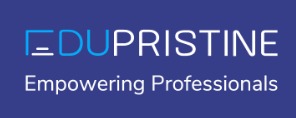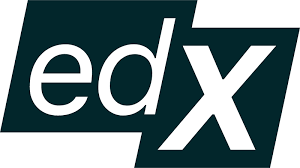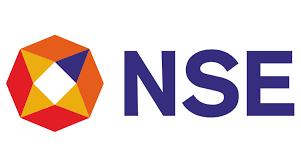If you are involved in finance, investment, or business strategy, then financial modeling is a fundamental skill you need to build. The need for financial modeling experts is up in Ethiopia. It is a new nation seeing rapid economic transformation. Whether you are in a corporate finance role or about to start a new entrepreneurial venture, mastering financial modeling is a good way to effectively contribute to Ethiopia’s well-developing economic sectors. Financial modeling courses in Ethiopia provide tools and strategies that enable the person to understand the intricacies of financial planning, forecasting and decision-making. This article discusses the importance of financial modelling and the top financial modeling institutes in Ethiopia.

What is Financial Modelling?
Financial modeling is the concept of constructing a design of useful financial scenarios. It is the process of using mathematical formulas, assumptions, and financial data to develop a framework within which a model of analysis of past performance, and future outcomes or a method for assessing the viability of an investment opportunity can be developed.
Such models are critical to decisions regarding portfolio management in corporate finance and investment banking, as well as to project development and company launch.
Financial modeling is a decision-making tool at its core. The model integrates available past historical data, current market conditions and several economic scenarios to give an overall understanding of potential outcomes. Let’s say businesses might utilize financial models to predict revenue, determine new project feasibility, or compute the impact of market fluctuations.
Key Components of Financial Modeling
Financial modeling has three basic components-
- Data Integration: Financial statements, market data and economic indicators combined.
- Scenario Analysis: Playing with a few different outcomes by changing the assumptions or inputs.
- Forecasting: The use of past trends and market information to forecast a company’s future financial success.
Financial modeling is becoming a very valuable skill in Ethiopia, and places of business are changing rapidly for the growth of the economy. They help enterprises go through market challenges, optimize their resources and present investment opportunities to stakeholders.
As the country’s interest grows in areas like sectors such as infrastructure, agriculture and renewable energy, financial modeling enables local businesses and government entities to make data-driven solutions to guarantee long-term growth.
The foundational building blocks of a financial model are key components that help make the model comprehensive and reliable. These include:
- Input Assumptions- A financial model is created based on assumptions, such as revenue growth, costs and the conditions of the marketplace. The inputs come from historical data, industry trends and strategic goals.
- Projections and Forecasting- Using details of past performance and market conditions past performance and market conditions, detailed projections for revenue, expenses, and cash flows are used to predict future performance.
- Key Financial Metrics- Performance is evaluated and investment opportunities are compared using NPV, IRR and financial ratios.
- Sensitivity and Scenario Analysis- Using models, we assess the impact on outcomes from changes in variables, preparing businesses for anything that may happen in the market.
- Reporting and Visualization- Summarized simple data through clear charts, graphs, and dashboards, making the findings transparent to stakeholders.
Together these components give actionable insights for decision making in the areas of budgeting, investment, and strategy development.
Get details on Our Advanced Financial Modelling Course here.
Why is Financial Modeling Important in Ethiopia?
Financial modeling is a crucial part of Ethiopia’s emerging economy. It provides answers to the particular challenges businesses, investors, and policymakers will face in the future. To support data-driven decisions and sustainable growth, financial modeling is central. Ethiopia embraces its economic transformation precipitated by infrastructural projects, industrial expansion and burgeoning private sector.
- Strategic Business Growth
Ethiopians do business in a dynamic market that offers opportunities in agriculture, renewable energy, and technology. Through financial modeling, they provide insights into long-term strategy planning and its feasibility. This is done by providing a picture of revenue pipelines, investment viability as well as market trends. The result is that this helps businesses to be more productive and harness growth opportunities.
- Attracting Investments
For both local and foreign investors, the economic landscape of Ethiopia is showing good potential. Financial modeling allows businesses to construct very compelling financial plans that include cash flow forecasts and return on investment analyses. That demonstrates clear, data-backed projections which help attract investors.
- Infrastructure Development
The feasibility and risk of infrastructure projects are assessed through financial modeling with significant investments in roads, railways and energy. Financial models are required by government entities and private developers in evaluating funding requirements, operational costs and potential returns.
- Navigate Economic Challenges
The slowdown in global commodity prices and exchange rates affect Ethiopia’s economy. Financial modeling enables businesses and policymakers to predict, and therefore mitigate, these risks with scenario analysis and sensitivity testing. The ready preparation for different economic scenarios makes them resilient and helps them to be stable.
- Enhance Entrepreneurial Success.
Financial modeling is a core part of the startup and small business success process. Entrepreneurs in Ethiopia can use it to evaluate ideas for a business, forecast profitability and get funding. A financial model which is detailed and professional builds trust in potential investors or lenders.
- Policy and Economic Planning
Financial modeling is just as useful for government bodies as it is for non-governmental organisations. It enables the formulation of policy, allocation of project funding and socio-economic impact of projects or initiatives. For example, a financial model can predict the benefits that occur from agricultural subsidies or renewable energy projects.
- Competitive Advantage
Matured financial models can deliver faster quicker and more informed decision-making in Ethiopia’s competitive markets. This advantage can make such organizations more profitable and more adaptable to market trends.
Given the pace at which economic reforms are taking place and the diversification of Ethiopia’s industries financial modeling is going to be an inevitable skill that everyone would require.
Option building and analysing financial models in corporate finance, public sector projects, etc. are important to inform decision-making and help the country’s economy develop. This makes it a good time to consider enrolling in one of the financial modeling institutes in Ethiopia.
How to Select the Best Financial modeling Courses in Ethiopia
Choosing the right financial modeling institutes in Ethiopia is key to getting the full value of learning and facilitating a particular career aspiration. There are quite a lot of courses available as Ethiopia’s economy is developing and people are in demand for financial professionals. Here are some important elements to consider when selecting the finest course:
- Content and Relevance of Curriculum
The course should cover the complete fundamentals and advanced financial modeling techniques. Topics such as financial statements, scenario analysis, valuation models and Excel or other spreadsheet tools are crucial topics. If the course contains Ethiopia-specific case studies or examples, make sure the content is more location-related to local challenges and opportunities.
- Mode of Learning
Courses can be offered online, in person or hybrid. Global online courses through IIM SKILLS, Coursera, or Udemy give students the flexibility and ease to study online with an option of remote study. But in-person courses are usually offered by universities or by local institutes which gives you a chance to have some hands-on experience and networking.
- Instructor Expertise
The credibility of the instructors is important. Search for courses taught by industry professionals with a long experience in financial modeling. Usually, instructors’ profiles contain their backgrounds, certifications, and areas of expertise, helping you to find admission to the whole training.
- Accreditation and Certification.
Being certified means that you have acquired recognised knowledge and skills for potential employers. This adds value to your resume. Ask whether the course is accredited by local Ethiopian educational authorities or internationally recognized through globally recognized certifications. This includes CFA Institute, CPA, or other local Ethiopian educational authorities.
- Practical Application
Learning in courses that focus on real-world applications is more beneficial. Look for programs involving hands-on exercises, case studies and project-based learning. Through these elements, it can help you understand and prepare for real-life financial challenges.
- Access to Tools and Software
The course on financial modeling should train students to use commonly used tools, such as Microsoft Excel or VBA Even financial tools like Python, R, etc., are important. This way students can be ready for what the industry demands.
- Reviews and Alumni Feedback
You can learn from what previous students shared by looking at reviews and testimonials of the students. Most alumni feedback will mention strengths and weaknesses and therefore help guide your decision.
- Cost and Value for Money
Financial Modeling Course costs can vary widely. Check if the fees compare to the course content, certification, and what comes with the job. Online courses can provide affordable options yet maintain quality or advanced training and networking opportunities in some premium courses.
- Networking Opportunities
Networking opportunities come hand in hand with courses offered by local institutes or online global platforms with community features. One way to meet potential coworkers and join in on conversations that could eventually lead down the path of a new job or collaborative venture.
- Duration and Commitment
Determine how much time is needed for the course. Quick skill enhancement can be done by short-term courses. In contrast, long-term programs can dig into more advanced topics. Find a course that will fit in with your schedule and learning goals.
To meet the demand for expertise in financial modeling in Ethiopia, consider these factors. You will arrive at a course that is in sync with your professional goals and also helps you improve your skill set. Now let’s look at the top financial modeling institutes in Ethiopia.
Benefits of Financial Modeling Courses in Ethiopia
| Benefits | Provided by the Courses | Description |
| Diverse Career Options | ✅ | Learn valuable specialist skills for the banking, investment, and corporate sectors. |
| Practical Skills | ✅ | Enhance your practical skills through industry-aligned initiatives. |
| Cost-Effective Learning | ✅ | Cost-effective, exclusive, and high-quality learning |
| Artificial Intelligence | ✅ | Improve your skills with AI and employ AI tools in financial modeling. |
| In-House Internships | ✅ | Internships provide opportunities to work with recognized companies. |
| Certification and Credibility | ✅ | Obtain internationally acknowledged certificates. |
| Placement Opportunities | ✅ | Get placement assistance for well-paying jobs. |
List of Top 10 Financial Modeling Courses in Ethiopia
| Institutes | Mode | Module Specific Trainers | Mock Interview |
| IIM SKILLS | Online | ✅ | ✅ |
| Addis Ababa University | Offline | ✅ | ❌ |
| Coursera | Online | ❌ | ❌ |
| Udemy | Online | ✅ | ❌ |
| EduPristine | Online | ✅ | ✅ |
| EDX | Online | ✅ | ✅ |
| Financial Edge | Online | ✅ | ❌ |
| LinkedIn Learning | Online | ❌ | ❌ |
| The National Stock Exchange (NSE) | Online | ✅ | ❌ |
| Wall Street Prep | Online | ❌ | ❌ |

The IIM SKILLS financial modelling courses in Ethiopia have something for both beginners and seasoned professionals. The program is set up so that you are given hands-on training in Excel, advanced financial formulas, and valuation techniques like DCF and Comparable Company Analysis.

Unlike many other courses, this one offers lots of real-world application work, as participants build multiple models during training. Ethiopian professional who is looking to advance their careers can find the program appealing due to its placement support, lifetime access to learning materials, and other offers.
These factors make it one of the best financial modeling institutes in Ethiopia.
| Courses | Duration | Fees |
| Self-Paced Program | 4 Months | 52764.38 ETB |
| Job Assist Program | 4 Months | 88058.27 ETB |
| Job Guarantee Program | 4 Months | 264527.76 ETB |

Contact Information:
| Phone | +91 9580740740 |
| [email protected] | |
| Website | iimskills.com |
Check out the best Financial Modeling Courses in Congo. Read for your career growth!
2. Addis Ababa University

Addis Ababa University is one of Ethiopia’s leading academic institutions offering on-campus financial modeling courses in Ethiopia. The courses are designed for the country’s economic context.
This course includes theory together with practical exercises on budgeting, forecasting, and the scenario. There are lots of networking opportunities available for participants of the course.
| Course | Duration | Fees |
| Financial Analysis | 2 years | Not Available |
Explore the best Financial Modeling Courses in Albania for your career enhancement.
3. Coursera

This specialization by the Wharton School through Coursera offers a series of courses that bring you up to speed in doing financial modeling. Projects conducted under the program involve the use of Excel to create detailed models that the participants work at doing.
These are online financial modeling courses in Ethiopia. Certification is also available upon completion and it is really helpful for Ethiopian professionals who want to work globally. This makes it one of the best financial modeling institutes in Ethiopia.
| Course | Duration | Fees |
| Business and Financial Modeling | Self-paced | USD 60/month |
| Finance and Quantitative Modeling for Analysts | Self-paced | USD 60/ month |
Here’s a guide to the top Financial Modeling Courses in Bulgaria with placement support.
4. Udemy
Udemy’s financial modeling courses in Ethiopia are geared toward aspiring financial analysts who will learn about a lot of stuff. The courses include financial statement analysis, modeling techniques, and industry-specific applications.
This course is flexible as learners are able to progress at their own pace. It’s a popular choice for learners who prefer a self-paced learning environment with lifetime access and affordability.

5. EduPristine

Financial Modeling courses in Ethiopia by EduPristine are globally recognized program that integrates the online and in-person aspects. Contents of the course include advanced Excel techniques, valuation methods, and scenario analysis.
In addition, it is also a holistic choice for professionals in Ethiopia as participants benefit from the institute’s post-training career services, resume building and interview preparation. This makes it one of the best financial modeling institutes in Ethiopia.
| Course | Duration | Fees |
| The Financial Modeling Course | 100 Hours | Not Available |
Read the top Financial Modeling Courses in Costa Rica to elevate your career.
6. EDX

High-quality financial modeling courses in Ethiopia are offered by EDX. They partner with well-known institutions such as Harvard and MIT. The focus of this program is on valuation methods and advanced modeling techniques.
The flexibility of EDX courses fits well with learners who are currently working and have professional commitments. The certification will give them a solid credential to complete a minimum requirement for many jobs.
| Course | Duration | Fees |
| Financial Modeling and Analysis | 4 weeks | Free |

7. Financial Edge

Financial Edge is a recognized training school for professionals. It offers highly specialized training in financial modeling and valuation. In addition to interactive exercises and real-world applications mimicking finance professional challenges, this program also helps to motivate students by incorporating practical exercises.
Its industry-focused curriculum primarily online is meant to prepare learners for global financial careers. This is one of the best financial modeling courses in Ethiopia.
| Course | Duration | Fees |
| Financial Modeling and Valuation | Self-paced | USD 165 |
Explore the top Financial Modeling Courses in Iceland and master the in-demand skills, tools, and techniques.
8. LinkedIn Learning

Courses on foundational financial modeling skills, provided in short, impactful lessons from LinkedIn Learning. Their financial modeling courses in Ethiopia are a great program for professionals new to the field who just need a quick, yet comprehensive perspective.
The platform even allows learners to display awarded certifications on their own LinkedIn profiles to add value and visibility to employers. This is one of the best online financial modeling institutes in Ethiopia.
| Course | Duration | Fees |
| Financial Modeling and Forecasting Financial Statements | Self-Paced | USD 30/ Month |
Refer to an extensive guide to the top-ranked Financial Modeling Courses in Chile. Explore in-depth.
9. National Stock Exchange (NSE)

The certified financial modeling courses in Ethiopia offered by the National Stock Exchange include market-specific modeling techniques and valuation strategies. Though rooted in India, the course is available online for Ethiopian learners.
It is in particular appreciated for its credibility and relevance to the industry. This makes it one of the most demanded financial modeling institutes in Ethiopia.
| Course | Duration | Fees |
| Financial Modeling and Valuation | 10 hours | Not Available |

10. Wall Street Prep

Wall Street Prep’s bootcamps are high-intensity financial modeling courses in Ethiopia. It is for finance professionals looking to better understand modeling skills. The course deals with advanced Excel techniques, mergers and acquisitions (M&A) modeling and leveraged buyout (LBO) analysis.
Learners can gain practical experience that will help give them a competitive edge in Ethiopia’s rapidly evolving financial sector, with its case study approach making it a top choice for learners looking to excel in Ethiopia’s financial sector.
| Course | Duration | Fees |
| Financial and Valuation Modeling Certification Program | 46 Hours | USD 494 |
Here is your complete guide to the Top Financial Modeling Course in Kolkata
1. What are the criteria for joining financial modeling institutes in Ethiopia?
The institute and course provider determine the prerequisites. To study most financial modeling courses in Ethiopia, you should have at least a basic knowledge of financial and accounting concepts. Advanced courses may also expect you to have some existing knowledge of valuation techniques or some experience in the field of finance. However, most of these courses are beginner-friendly like IIM SKILLS where the learner needs no prior knowledge.
2. Can you take financial modeling courses in Ethiopia online?
Definitely, many financial modeling institutes in Ethiopia are available online. Learners can access flexible online programs from any institute, such as IIM SKILLS, Coursera, and Wall Street Prep. These courses, most of the time, come with recorded lectures, live sessions as well as downloadable resources. Working professionals and students who need a little more flexibility in their schedules will particularly appreciate online courses.
3. How much does it cost to take financial modeling courses in Ethiopia?
The prices of financial modeling courses in Ethiopia depend on the course provider and length as well as the content of the course. For basic courses on platforms such as Udemy, they might begin at a low price. At the same time, comprehensive programs from institutes such as EduPristine or Financial Edge can be higher. There are many programs which either provide financial aid or an option of free audit, so they can be more easily accessible.
4. After finishing financial modeling courses in Ethiopia, what career opportunities are available?
A course in financial modeling opens many doors in a career in finance, financial analysis, equity research, corporate finance, and management consulting. Professionals with financial modeling skills are in demand in all types of industries in Ethiopia including agriculture, banking and real estate. Reputed course certifications can also help you to become eligible for a global job.
5. Is it possible to be pursuing financial modeling while I have a job currently?
Yes, most financial modeling courses in Ethiopia are geared towards a working professional. IIM SKILLS, LinkedIn Learning and Coursera offer learners, flexibility to study at their own pace which balances well with professional commitments. Sometimes weekend classes or recorded sessions are provided, whereby people could learn upskilling from the comfort of their homes, without affecting their work.
Check out IIM SKILLS for more professional courses and programs to help you find your career path.
Conclusion
Financial modeling sits at the intersection of data and actionable strategies to drive Ethiopia’s growing dynamic economy. Professionals who enrol in financial modeling courses in Ethiopia get an edge in the banking, agriculture and manufacturing industries.
This article featured courses which feature a diverse variety of offers, from beginner courses to more advanced courses for seasoned professionals. Acceptance of modern financial practices continues to grow in Ethiopia. These programs not only elevate individual career potential but also help to promote nationwide economic development. This is a good time to invest in skills that will help you grow in your career.

